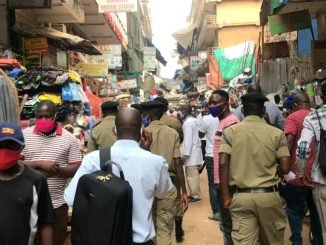
Kampala, Uganda | URN | Proposals to cancel the 2020 academic year for learners at all levels of education have been received with mixed reactions among parents. Schools and other educational institutions were closed on March 20, as the government announced measures to control the spread of coronavirus disease.
Although the government had initially announced to open up for candidate classes, the plan was cancelled early this month as a result of an increase in the number of COVID-19 cases. There are more than 700 cases in Uganda so far with more numbers coming from the communities lately.
It’s on the basis of this that members of the National Economy Committee of Parliament asked the government to declare 2020 a dead year for education. They argued that the online learning options that had been put in place by the government seemed not to work given the technology divide in Uganda.
During his Heroes’ Day address on June 9, President Yoweri Museveni said that he had received pleas from several parents urging him to keep schools and other institutions of learning closed for the rest of the year.
This position has been supported by Rev George William Kyeyune, the Namirembe Diocesan Vicar who says that the government should declare 2020 a dead year and go back to the drawing board to develop a comprehensive sustainable plan.
“Currently, we seem to be in a panic mode with everybody fronting his idea. And surprisingly some of these ideas have been tried out without analyzing whether they can work. We need a detailed plan and developing one cannot take a few weeks,” says Rev Kyeyune.
Diana Mbabazi, a resident of Nansana shares that it will be difficult for children to observe social distancing and all the other measures that have been put in place to stop the spread of coronavirus disease.
Barbra Kugonza, another parent shares that after wasting a lot of time on unpractical alternatives, the government needs to stop the entire process and plan forward. Kugonza adds that even the children are currently not fit for learning in a school environment and asserts that focus should be on continuous learning on digital platforms only for keeping learners engaged.
However, Scovia Tushemeirerwe, resident of Bukoto also says that stopping the academic year is not justifiable given the fact that nobody knows when the COVID-19 pandemic will end. According to her, it is high time the system adopts means of living with the pandemic.
“What if COVID-19 continues up to the next year? Does that also mean that there will be no learning? Education is an important aspect. We need more human resources and how do we get them, it is through the education system. Maybe we can change the way things function but not calling it off.” Tushemeirerwe says.
Read Also: Uganda’s education system not prepared for digital learning tide
Prossy Awino, a resident of Kamwokya says that calling off the academic year will have other impacts like increased school dropouts especially among the girl child. She advises that the government should put up strict operational standard procedures so that school reopens.
Annet Kirabo, a resident of Kyambogo shares that although she would want her children to return to school, she is currently incapacitated financially after three months with no substantive income. To her, reopening of school could not benefit all, as the school will also need money to cater for administration and logistics.
The Ministry of Education has come up with a temporary intervention by instituting learning through self-study materials and televised lessons. However, the response plan has been criticized with some education experts saying it fell short because the learners were not prepared for the self-study learning approach and lack technical support to facilitate the self-learning process.



